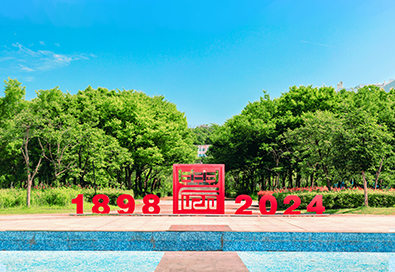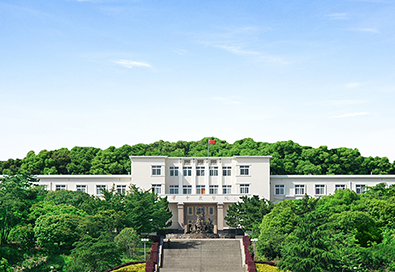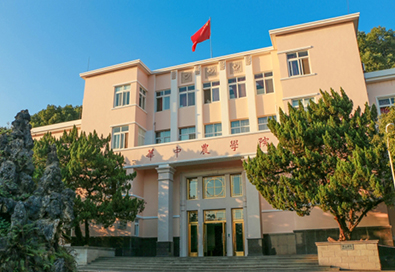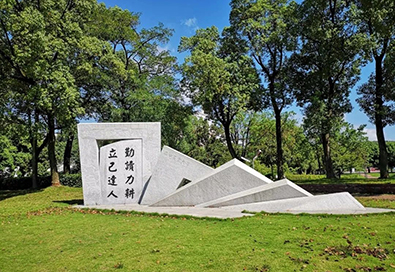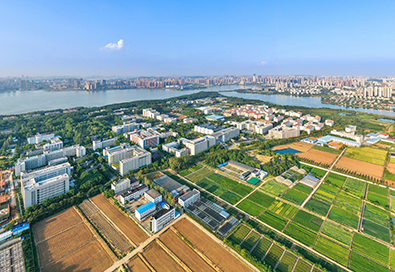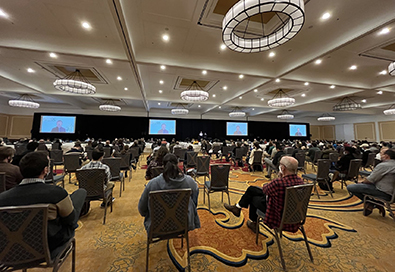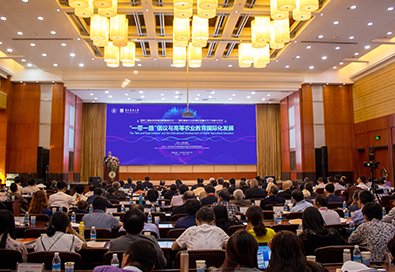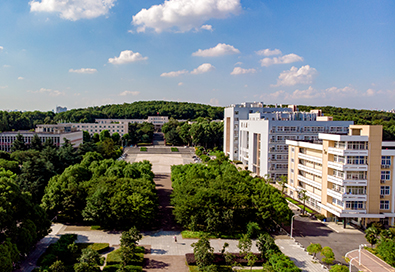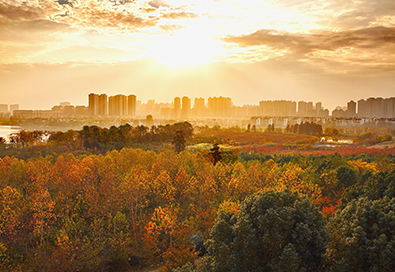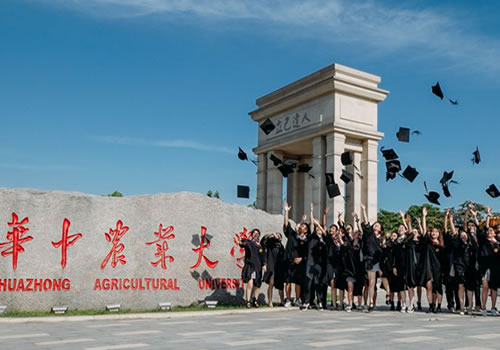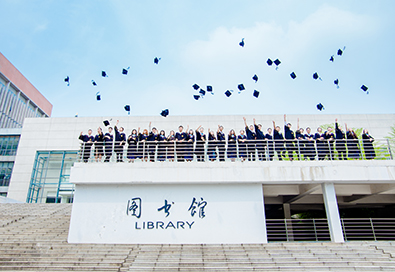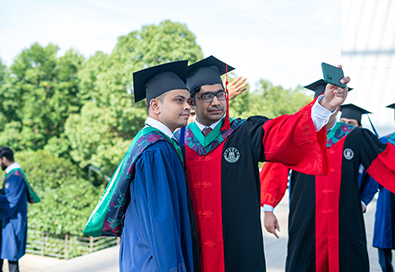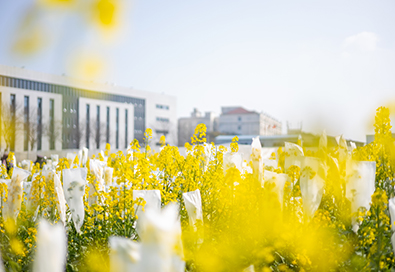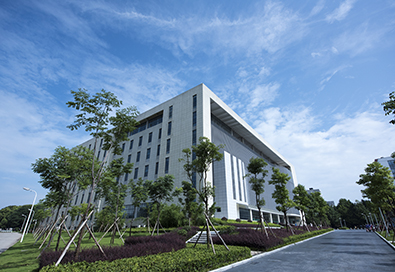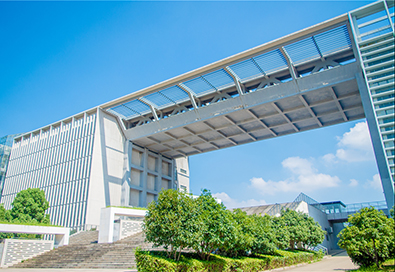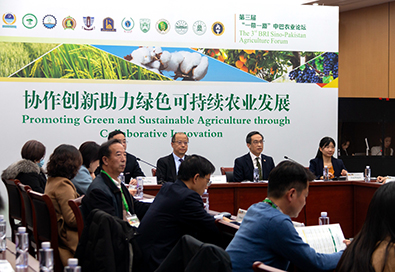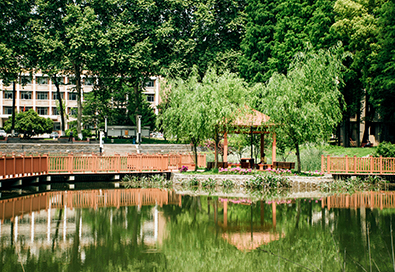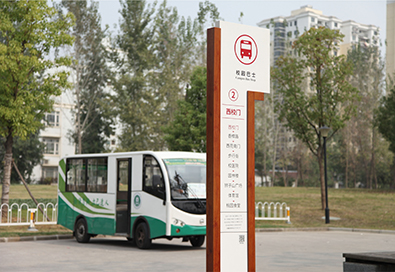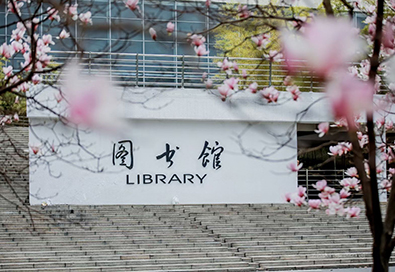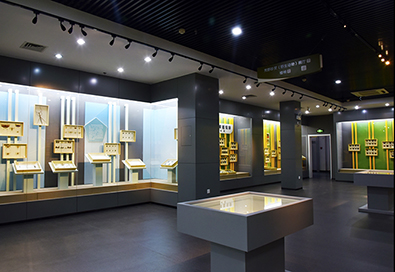
The symposium on site (Photo/Jiang Fei)
On May 16, the Symposium on Digital Intelligence Transformation and Curriculum Ideological and Political Education in Hubei universities was held in the lecture hall of the National Key Laboratory of Agricultural Microbiology of HZAU.
It was sponsored by the Hubei New Agricultural Science Alliance and HZAU, and was organized by Wuhan Teaching Cultural Communication Co., Ltd.
Cui Feng, director of the Higher Education Office of Department of Education of Hubei Province, and Qing Ping, vice president of HZAU, attended the symposium. Nearly 200 people, including principals of administrative departments and front-line teachers from 43 universities inside and outside Hubei Province, participated in the discussion and exchange.
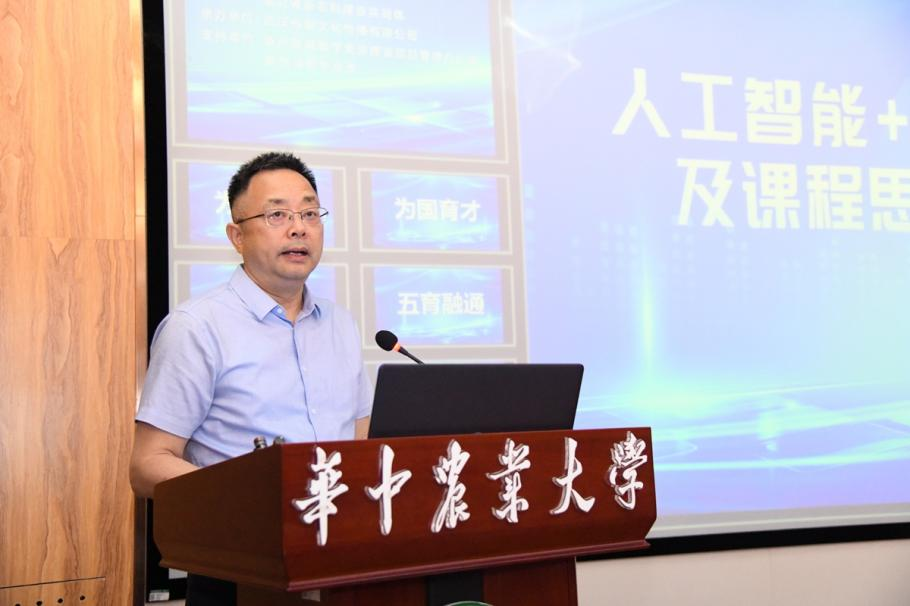
Qing Ping delivers a speech (Photo/Xu Xing)
In the opening speech, Qing Ping emphasized that in the digital era, where digital literacy is fundamental, educational practices must adapt to new circumstances, evolve with the times, and innovate with the trends. The digital transformation of education demands not only advancements in tools and technology, but also innovative approaches in methodology and philosophy. This requires the digital transformation of education and teaching in the new era to truly achieve: focusing on the future, emancipating the mind, and putting students first.
He called on members of the Hubei New Agricultural Science Alliance and attending delegates to utilize their collective strengths and collaborative research to drive the development of Central China, the Yangtze River Economic Belt, and promote the region’s comprehensive high-quality growth.
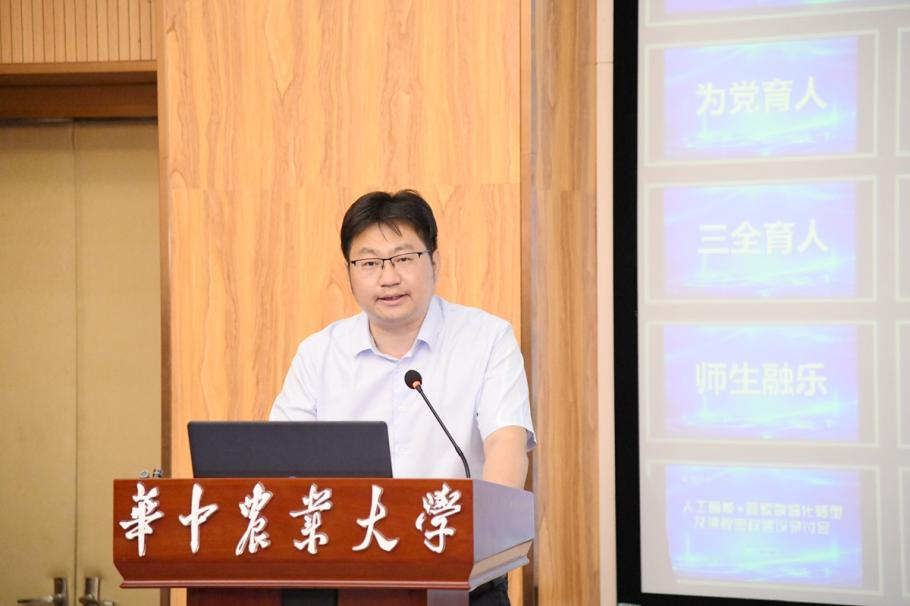
Cui Feng gives a speech (Photo/Xu Xing)
Cui Feng, director of the Higher Education Office of Department of Education of Hubei Province, said that the development of digital technology had brought unprecedented opportunities and challenges to higher education, especially the rapid rise of new-generation digital technology represented by generative artificial intelligence, which would bring landmark changes to the reform and development of higher education. The Higher Education Office will highlight the preparation of the 2025 World Digital Education Conference and the implementation of special actions for the digital transformation of education as the top priorities of its annual work, and will implement the “1+1+N+N” action plan.
The first “1” refers to the upgrade and transformation of the “Hubei Higher Education Management System” and the “Hubei Higher Education Course Alliance”; the second “1” involves the creation of a report on the digital development of undergraduate universities in Hubei province; the first “N” signifies the selection of a group of undergraduate universities to focus on the construction of smart campuses; and the second “N” denotes the active development of a batch of demonstration cases of large-scale artificial intelligence model applications.
He praised HZAU and other universities for their reform initiatives in integrating “AI + Higher Education,” calling on universities to actively explore, contribute their wisdom to the reform, adhere to the “application-oriented” approach, and accelerate the construction of a new ecosystem of “AI + Education” with Hubei characteristics.
At the meeting, Wang Hongyu, executive secretary of the Virtual Simulation Experimental Teaching Innovation Alliance and director of the Project Management Office for Teaching Resource Construction in Key Fields, delivered a detailed interpretation of the connotation and content of knowledge graphs and intellectual education under the topic “Empowering Technology, Transforming the Future: Creating a New Digital Teaching Ecosystem Based on Knowledge Graphs.” He elucidated the use of educational knowledge graphs in teaching, covering knowledge representation, resources, curriculum, experiments, digital textbooks, and virtual research, proposing a new digital teaching ecosystem with structured knowledge, organized resources, visual data, and intelligent management.
Gong Zhijun, editor and reviewer of Xinhua Net, delivered a report titled “Deepening the Integration of Curriculum Ideological and Political Education and Improving the Quality of Higher Education,” introducing the paths to strengthen the construction of ideological and political curriculum from aspects such as the construction of school-level resource library platforms, teacher capability enhancement, demonstration course construction, and environmental construction.
Professor Luo Ziqiang from the School of Basic Medical Sciences of Central South University, Professor He Xiuling from the Faculty of Artificial Intelligence Education of Central China Normal University, Professor Cao Xiaojuan from the College of Fisheries of HZAU, Deputy Dean Cao Minhui from the College of Engineering, and Cheng Xieshe, director of the Office of Practical Teaching Management of HZAU Undergraduate School, delivered special reports focusing on the construction of exemplary ideological and political curriculum, typical cases of artificial intelligence application in education and teaching, knowledge graph construction, and digital enabling of practical teaching.
Participants conducted in-depth discussions on the current status, methods, and practices of digital transformation in education, artificial intelligence applications, and the construction of ideological and political curriculum.
Source:http://news.hzau.edu.cn/2024/0517/69753.shtml
Translated by:He Qiuyan
Proofread by:Hu Miao
Supervised by:Pan Buhan

